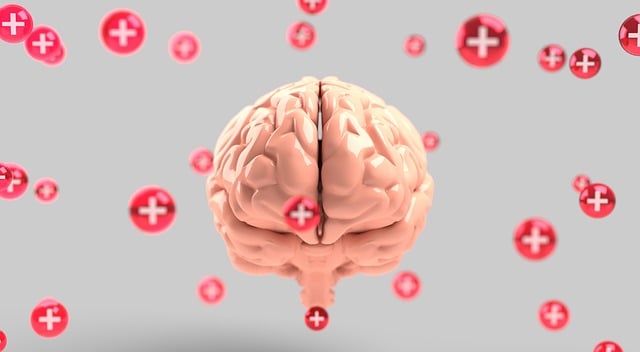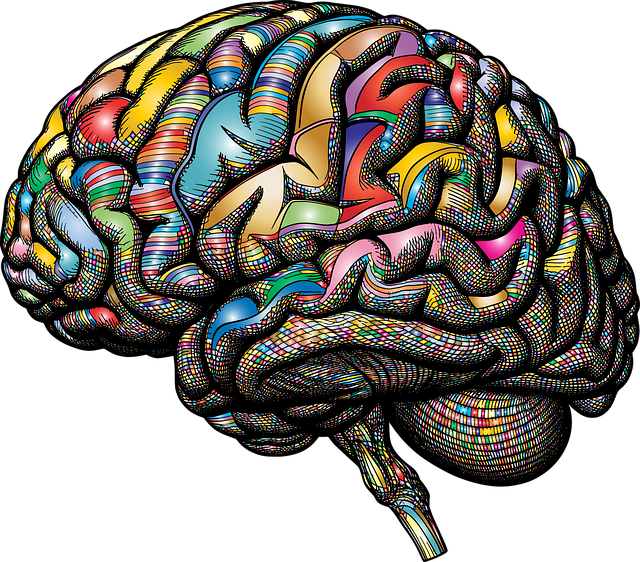Mental health policies are vital for supporting elderly individuals with Autism Spectrum Disorder (ASD), addressing their unique challenges including age-related complexities and social isolation. Specialized programs like Mental Wellness Coaching, coupled with evidence-based practices and cultural sensitivity, can improve quality of life. Advocacy for accessible, personalized mental health services, training healthcare providers, and reducing stigma are key strategies to ensure these elders receive tailored therapy, enhancing well-being and empowering them to live fulfilling lives.
Mental health policies play a pivotal role in shaping support systems for elderly individuals with Autism Spectrum Disorder (ASD), ensuring they receive appropriate therapy and care. This article delves into the intricate relationship between mental health policy and ASD in elders, analyzing its impact on access to quality treatment. We explore current therapy offerings, identify gaps in existing policies, and present effective advocacy strategies to enhance care. Through case studies, we demonstrate successful policy interventions and their lasting effects on improving the lives of elderly ASD patients.
Key focus: Therapy for Elders with Autism Spectrum Disorder.
- Understanding Mental Health Policy and Its Impact on Elderly Individuals with Autism Spectrum Disorder (ASD)
- The Current State of Therapy and Support Services for ASD in the Elderly Population
- Identifying Gaps and Challenges in Existing Mental Health Policies
- Advocacy Strategies to Improve Access and Quality of Care for Elderly ASD Patients
- Case Studies: Successful Policy Interventions and Their Long-Term Effects on Elderly ASD Individuals
Understanding Mental Health Policy and Its Impact on Elderly Individuals with Autism Spectrum Disorder (ASD)

Mental health policies play a pivotal role in shaping support systems for elderly individuals with Autism Spectrum Disorder (ASD), ensuring they receive appropriate care and access to specialized services. These policies directly impact the availability and quality of therapy for elders with ASD, fostering either resilience or barriers to necessary treatment. The unique challenges faced by this demographic demand tailored interventions addressing both mental health and autism-specific needs.
Elderly individuals with ASD often require support in navigating age-related changes while managing symptoms associated with their spectrum disorder. Effective policy initiatives can drive the development of targeted programs, such as mental wellness coaching for seniors with ASD, promoting resilience and overall mental wellness. Additionally, public awareness campaigns are essential to destigmatize mental health issues among this population, encouraging open conversations and access to much-needed services, ultimately enhancing their quality of life.
The Current State of Therapy and Support Services for ASD in the Elderly Population

The current landscape of therapy and support services for individuals on the autism spectrum disorder (ASD) in their elder years is a complex web that requires careful unravelling. While significant strides have been made in recent years to improve mental health awareness and understanding, the unique challenges faced by older adults with ASD often go overlooked. Traditional therapeutic approaches may not adequately address the specific needs of this population, as they typically focus on younger individuals without considering age-related factors and comorbidities. As a result, many elderly ASD individuals struggle with social isolation, communication barriers, and developing coping skills to manage their mental wellness.
The development of specialized programs, such as Mental Wellness Coaching, tailored for older adults with ASD is crucial. These initiatives should aim to enhance their quality of life by fostering meaningful connections, improving daily living skills, and promoting self-advocacy. By incorporating evidence-based practices alongside cultural sensitivity, Mental Health Awareness campaigns can significantly contribute to breaking down barriers and ensuring that the elderly with ASD receive the necessary support for their holistic mental health and well-being.
Identifying Gaps and Challenges in Existing Mental Health Policies

Identifying gaps and challenges in existing mental health policies is a critical step in fostering effective support systems, especially for vulnerable populations such as elders with Autism Spectrum Disorder (ASD). Despite growing awareness, many current policies fall short in addressing the unique needs of this demographic. For instance, while therapy services are available, access to specialized care tailored to the complex social and communication challenges faced by ASD elders remains limited.
Mental Health Policy Analysis and Advocacy, guided by Mind Over Matter principles, can help bridge these gaps. By advocating for evidence-based practices that promote positive thinking and inclusive support, policymakers can ensure that mental health services are accessible, culturally sensitive, and tailored to the diverse needs of individuals with ASD across different stages of life. This approach not only enhances overall well-being but also empowers elders with ASD to lead fulfilling lives.
Advocacy Strategies to Improve Access and Quality of Care for Elderly ASD Patients

Advocacy plays a pivotal role in shaping mental health policies and ensuring equitable access to quality care for elderly individuals on the autism spectrum (ASD). One effective strategy involves raising awareness among healthcare providers about the unique needs of older ASD patients, fostering a more inclusive environment. This can be achieved through targeted training programs that educate professionals on recognizing and addressing ASD-related challenges in an aging population. By integrating evidence-based practices, such as mindfulness meditation, into clinical settings, therapists can enhance treatment outcomes and boost confidence among this vulnerable group.
Additionally, advocacy efforts should focus on reducing the stigma associated with mental illness, especially within the elderly ASD community. Mental illness stigma reduction campaigns can empower individuals to seek therapy for elders autism spectrum disorder and encourage family members to support their loved ones’ mental health journeys. Engaging community leaders and organizations in these initiatives ensures a comprehensive approach to improving access to care, ultimately enhancing the overall well-being of elderly ASD patients.
Case Studies: Successful Policy Interventions and Their Long-Term Effects on Elderly ASD Individuals

Successful policy interventions aimed at improving mental health services for elderly individuals with Autism Spectrum Disorder (ASD) have shown promising long-term effects. These initiatives often involve tailored therapy programs, such as cognitive-behavioral therapy and social skills training, which are adapted to meet the unique needs of this demographic. For instance, case studies highlight that structured interventions focusing on emotional regulation and self-awareness exercises can significantly enhance the quality of life for elderly ASD individuals. These therapies not only assist in managing symptoms but also foster better coping strategies, enabling them to navigate social interactions more effectively.
Moreover, risk management planning for mental health professionals plays a pivotal role in ensuring these interventions are sustainable. By implementing evidence-based practices and promoting continuous training in ASD care, healthcare providers can offer consistent support. This, in turn, leads to improved patient outcomes and fosters a sense of stability within the community, showcasing the profound impact of well-designed policy strategies in addressing the mental health needs of elderly ASD individuals.
Mental health policy analysis reveals significant gaps in support for elderly individuals with Autism Spectrum Disorder (ASD), particularly in accessible and quality therapy. The current state of services often falls short, highlighting the urgent need for advocacy. By identifying challenges and leveraging successful case studies, we can drive meaningful change. Advocacy strategies focused on improving access to specialized care and enhancing service integration are pivotal steps towards revolutionizing mental health support for this vulnerable population. Through policy interventions, we can ensure that elderly ASD patients receive comprehensive, long-term therapy tailored to their unique needs.









